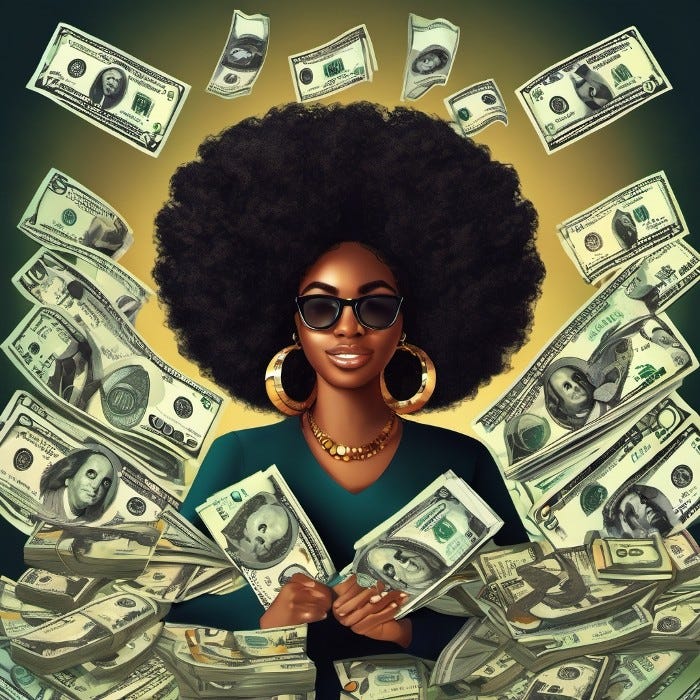Why not hire black women to sell and make products for black women?
Why are some of us so tone deaf to American-made clothing and black-owned businesses?
I hate it when a podcaster or YouTube personality disappoints me. These two groups are my favorite to listen to while walking my dog. But I clicked the “unsubscribe” button as soon as the Pennsylvania podcaster gushed over why U.S. entrepreneurs should avoid hiring U.S. workers, who are “making $80K” when he could choose to hire overseas workers for the “same” work at $20K.
Imagine a U.S.-born entrepreneur (no, I’m not linking his channel) with largely U.S. subscribers (906K at the time of this writing) who has lucrative U.S. clients telling his subscribers to not hire U.S. employees. The “huge advocate of hiring people outside of the United States” even narrowed it down to hiring in the Philippines or Malaysia.
Another one bites the dust.
ADVERTISEMENT ~ Amazon
As an Amazon Affiliate, I earn a percentage from purchases using my referral links.
Although the YouTuber is a white guy (who I admit gives very helpful online marketing advice), his take on employment reminded me of a black fashion designer I once dated. From the designer’s looks alone, he was going to catch black women’s eyes. He damn sure distracted me when I first met him while shopping at Best Buy.
He was a magnet for white women too. We went to a bar once, and our waitress (white lady) kept coming back to our table over and over and over again to ask if we “needed anything else.” I’ve never been the openly jealous type (even if I’m screaming in my head). But by the fifth time she circled back, I made eye contact with her in a “that’s enough” facial expression. She didn’t return again until he asked for the check.
ADVERTISEMENT ~ Amazon
As an Amazon affiliate, I earn a percentage from purchases with my referral links. I know some consumers are choosing to boycott Amazon for its DEI removal. However, after thinking about this thoroughly, I choose to continue promoting intriguing products from small businesses, women-owned businesses and (specifically) Black-owned businesses who still feature their items on Amazon. All five of my Substack publications now include a MINIMUM of one product sold by a Black-owned business. (I have visited the seller’s official site, not just the Amazon Black-owned logo, to verify this.) If you still choose to boycott, I 100% respect that decision.
So I knew him selling women’s clothing was going to go over well. His problem? He was frustrated by how long it was taking for his clothing order to arrive from overseas. There was always something wrong with it: a letter was misspelled, the logo was peeling off, the material was too tight in the wrong areas. They were really cute clothes though, and I was super comfortable in a pair of “booty shorts” he asked me to try on. (After we parted ways, I kept those shorts — even with his logo on them.)
Recommended Read: “Is fast fashion killing the planet?”
But he complained all the time about how he was having language barriers and time zone issues with the manufacturers. After patiently listening to his complaints on more than one occasion, I finally gave up on being a silent supporter.
“You’re marketing these clothes to black women?” I asked.
“Yes!” he responded.
“And you want black women to spread the word about the clothes and wear them?” I asked.
“Of course,” he said. “Most of them are for black women’s shapes — like yours.”
“Do you know any black women seamstresses?”
“Why are you asking me this?”
“Do you know any black women who can sew on logos?”
“Where are you going with this?”
“You want black women to wear your clothes, but you don’t want to hire these same women to design logos, sew the fabric or even test the clothes out before they’re sold,” I responded. “So if you’re not trying to hire black women, why should we buy your products?”






